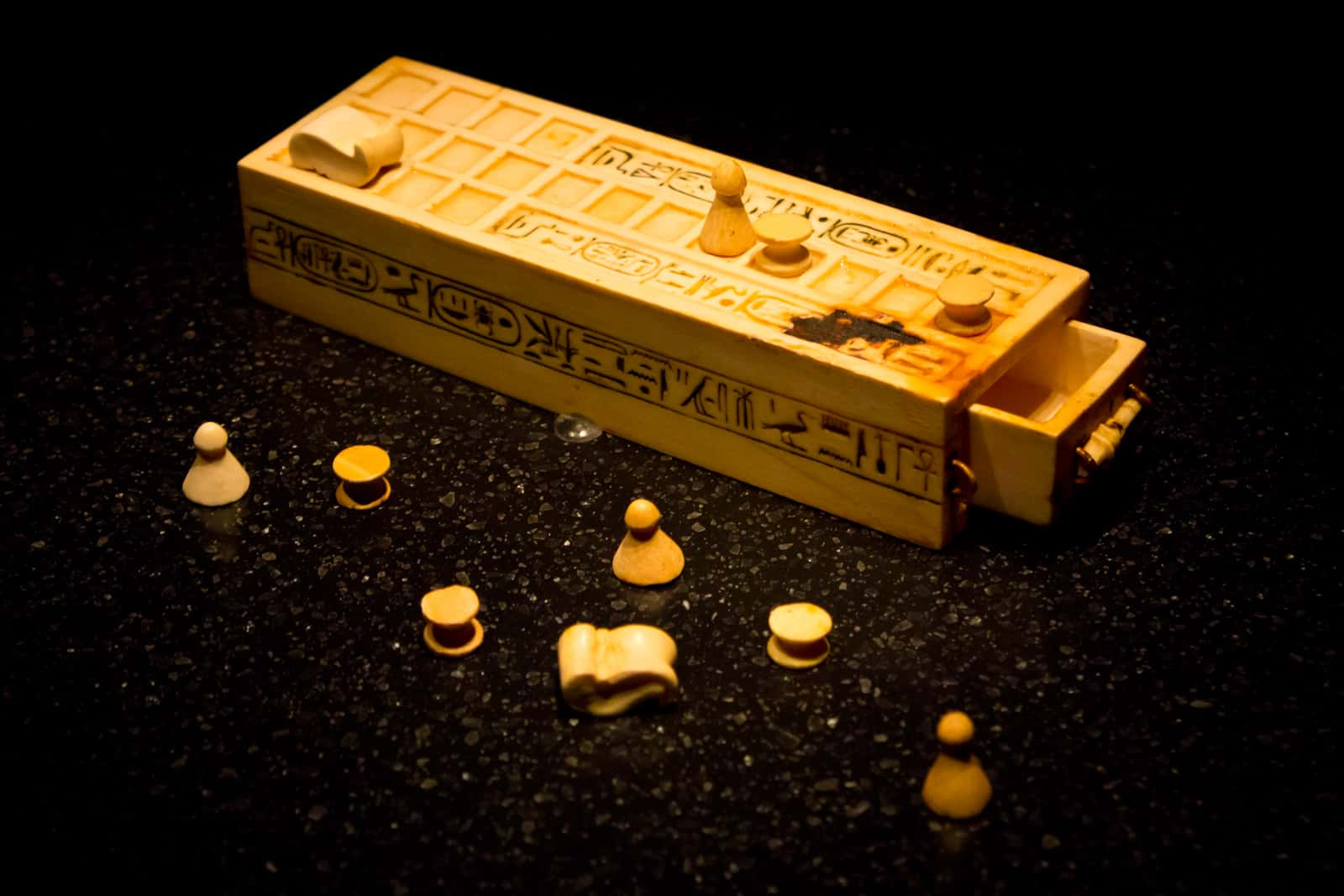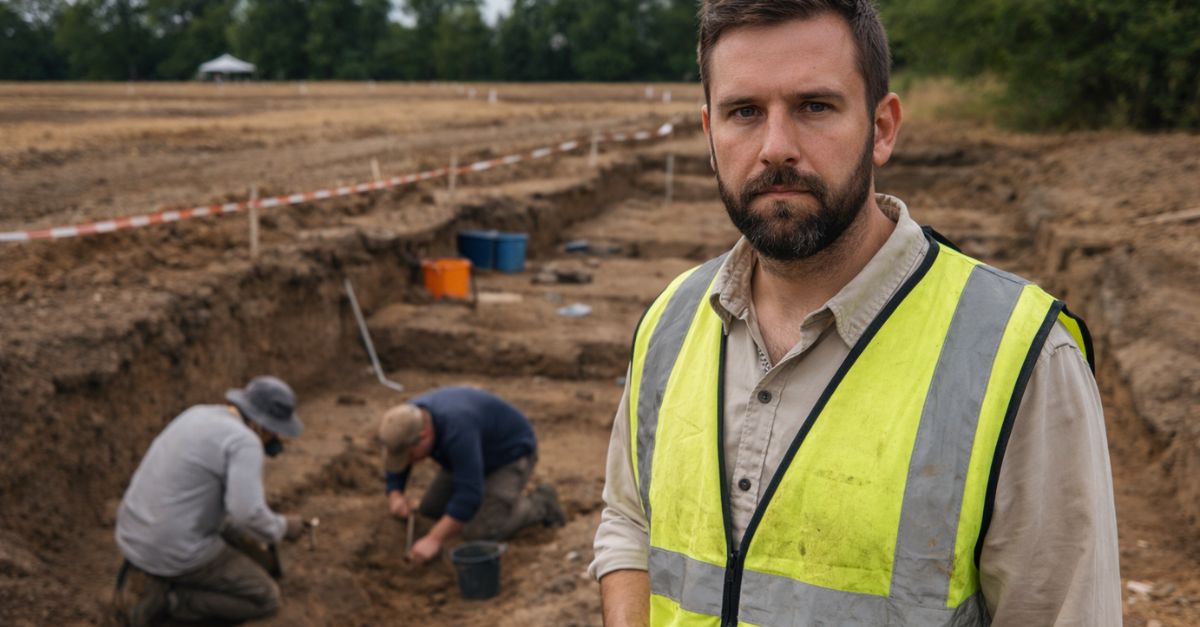“Procrastination is the thief of time". —Edward Young
“Procrastination is the bad habit of putting off until tomorrow what should have been done the day before yesterday". —Napoleon Hill
Few things cause us as much trouble as putting off tasks until later. If you suffer from (or even enjoy) procrastination, don’t worry, you’ve come to the right place. Here are 38 facts that you shouldn't put off reading.
1. A Lot of Stuff is Getting Done Tomorrow
Roughly one out of every five people admit to being a chronic procrastinator. It affects all aspects of their lives: Everything from employment to credit rating is negatively impacted by procrastination.

2. Nurture, Not Nature
Procrastination is a learned behaviour; it's not inherited, and, so far as we know, there is no “procrastination gene". Many times, children become procrastinators in direct response to an overly-authoritative parent. They strike back by procrastinating, one of the few areas in their life over which they still have control.
3. Then They Put Off Going to Rehab
Statistically, procrastinators are much more likely to face substance misuse challenges. The same lack of ability to self-regulate their time manifests as an inability to self-regulate their use of intoxicants.
4. The Trifecta
There are three types of procrastinators. "Thrill-Seekers" purposely wait until the last minute in order to feel the adrenaline rush as they race to beat the deadline. "The Avoiders," those who have a crippling fear of failure (or success), are overly-concerned about what others will think of their work. And finally, the "Indecisive" procrastinators are the folks who put off picking one option or the other because if they don’t commit to a decision, they can’t be held responsible for any negative outcomes.
5. Take It Easy
Regardless of type, all procrastinators share one underlying characteristic: they put off what they should be doing and focus instead on the easier, more enjoyable tasks. Sometimes they even resort to cleaning or some other seemingly productive task in order to avoid the one they should be doing.
6. No Facebook in the 70s
Though at least 20% of people admit to being chronic procrastinators, in 1978 that number was only 5%. There is currently no universally accepted theory to explain the fourfold increase (*cough* Facebook *cough*).
7. Maybe Get Rid of the Water Cooler
In 2012, the cost of procrastination for a business was $10,396 per employee. That’s over 10 grand that the non-procrastinators don’t have an opportunity to earn because everyone else is updating their LinkedIn page and playing Spider Solitaire instead of finishing those TPS reports.
8. Uncle Sam Thanks You
Procrastinating also costs American taxpayers an estimated $500 million per year because late-comers file their returns after the deadline. Penalties and late fees are incurred any time a return is filed after April 15th. Of course, you could file an extension, but that’s also due by April 15th, so…never mind.
9. Always Time to Be Overly Optimistic
One of the biggest misconceptions about procrastination is the assumption that it's just about poor time management. The problem actually runs much deeper. People don’t underestimate how long a task will take—instead, they overestimate their ability to get it done.
10. Nothing New
Though we tend to think of it as a modern phenomenon, procrastinating has been going on since the first person got assigned a task they weren’t thrilled about doing. Though our distractions are more numerous and sophisticated, the ancients did things like gossip and play games. In fact, the earliest board game was played in about 3500 BC, no doubt because some Ancient Sumerian's boss told them to get started on those Ziggurats!
11. My Brother the Slacker
One of the first written mentions of procrastinating is in the writings of the ancient Greek poet Hesiod. In his poem “Work and Days,” written about 700 BC, he writes about his brother Perses, who is rapidly burning through his inheritance. He advises his brother, “Do not put your work off till to-morrow and the day after; for a sluggish worker does not fill his barn, nor one who puts off his work".
12. Best Doodler in History
Leonardo da Vinci was a notorious procrastinator. He completed fewer than 20 paintings in his lifetime, and spent 16 years on the Mona Lisa alone. Much of the time he should have been painting was actually spent doodling in one of his many notebooks. Before you get too excited because you also doodle when you should be working, it would be wise to remember that some of da Vinci’s “doodles” included early designs for the helicopter, a moveable wall, and highly accurate maps that were often hundreds of years ahead of their time.
13. Extreme Counter Measures
People often take extreme measures to keep themselves from procrastinating. Victor Hugo, the French author best known for The Hunchback of Notre Dame, was one such person. After months of what we would probably term “jacking around,” Hugo left himself only six months to write Hunchback by the publisher's deadline. Springing to action, Hugo had all of his clothes removed from his home except for a thin shawl. Having no clothes to wear outside, he was able to get down to business and complete the classic on time.
14. Frank Lloyd Wright Now
Though he was a world-renowned architect, Frank Lloyd Wright was also a legendary procrastinator. After assuring his client, Edgar Kaufmann, that he had been diligently working on the plans for Kaufmann's new home for the past nine months, Kaufmann surprised Wright with a phone call out of the blue informing him that he’d be at Wright’s home that day to look at the plans. Unfortunately, Wright had not yet begun work on the blueprints. He calmly sat down and drew the plans for what would become Fallingwater, one of the most famous residential structures in the world.
15. Mental Causes
In addition to procrastination being a learned behavior, there are other psychological conditions that can lead to procrastination. Among these are anxiety, depression, obsessive-compulsive disorder (OCD), and attention deficit disorder.
16. Sounds Like Politicians
Partners or co-workers of procrastinators often feel like they have been lied to by the procrastinator. In truth, the procrastinator is lying to themselves. In other words, the offender completely believes they are going to accomplish the task assigned them and are therefore technically telling the truth.
17. At Least She Got to Keep Her Clothes
Despite having an impressive list of published works, author Margaret Atwood still suffers from serious bouts of procrastination. Like so many of us, she has found herself wasting countless hours on the Internet, especially on Twitter. She solved the problem by allowing herself only 10 minutes on Twitter a day and by keeping two computers on her desk. One has an internet connection and the other one does not. While writing, she sticks solely to the non-connected computer to avoid electronic distractions.
18. Never Too Soon to Start
One of the areas most affected by procrastination is long-term investing. Because of compound interest, delaying funding an IRA can have a devastating effect on your bottom line. Waiting 10 years to fund your IRA can leave it with half the value it would otherwise have. Simple rule? Fund it early. Fund it often. Leave it alone until you retire.
19. Don’t Ignore Your Homework
By procrastinating on major financial decisions, you can leave yourself with little time to read all the fine print in product descriptions or contracts. You're also less likely to comparison shop.
20. Rip off the Band-Aid
Procrastination can also seriously damage personal relationships. When one person is unhappy, there is often a strong temptation to put off discussing it with your partner because there is a fear of having an uncomfortable, and likely confrontational, discussion.
21. They Probably Feel the Same Way
Putting off having a difficult conversation with a partner, while easier in the short term, can rob you of years of potential happiness. As a bonus, once the subject is broached, there’s a good chance your partner has many of the same feelings, and the mere process of opening up with each other may actually bring you closer together.
22. Sounds About Right
The word “procrastinate” comes from the Latin “procrastinare". “Pro” means “forward” and "crastinus” means “until next day". Now you don’t have to put off looking it up any longer.
23. Cortex Problems
The problem of procrastination is believed to originate in the prefrontal cortex. This is the area of the brain concerned with executive function. In particular, the functions of impulse control, attention, and planning. These functions are often underdeveloped in chronic procrastinators.
24. Maybe Bop Them With a Rolled-Up Newspaper
Dealing with a procrastinator can be very challenging, but make sure you understand their motives. Remember, it’s not a problem of time-management or laziness, and treating them like it is will likely lead to frustration and anger for everyone involved.
25. Good Boy!
Rewarding them for completing a task that they were dreading, regardless of how small, can be a great first step in getting a procrastinator to change their ways. It may be slow going at first, but tangible results can be achieved with patience and solid strategies. The most important part? Stop putting it off and tackle the problem head-on. In other words, stop procrastinating!
26. Moral Failings
Ancient Jewish texts as well as the Christian Bible argue that procrastination is a moral failing that takes you further away from God. Simply put, it wasn’t enough to know what was right, you had to follow it up by immediately acting on that knowledge.
27. That’s Why We Have Servants
Not every culture, however, held procrastination in contempt. In pre-revolutionary France, performing physical labor was a task left to members of the lowest classes or the bourgeoisie. The ruling nobility actively rejected values like hard work and efficiency.
28. The Puritan Work Ethic
In America, Jonathan Edwards, one of the most influential Puritan clergymen of his time, constantly used the Bible to warn against the scourge of procrastination. He often quoted the book of Proverbs to show God’s disdain for procrastination. In particular Proverbs 27:1, which states, “Boast not thyself of to-morrow; for thou knowest not what a day may bring forth".
29. I Keep Meaning to Join
Established by Les Waas in 1956, the Procrastinator’s Club of America identifies its purpose as extolling “the philosophy of relaxation through putting off until later those things that needn't be done today." It boasted a membership of 6,000 people in 1995, and its newsletter is entitled “Last Month’s Newsletter".
30. Put Your Time Off Request in Early
In the United States, National Procrastination Week is celebrated sometime during the first two weeks of March. In keeping with the theme, it’s celebrated on different dates every year.
31. The Duality of Procrastination
Some scientists believe there are two kinds of procrastination. Active procrastination is being aware of putting off a task, but doing something valuable in its stead. The second, more problematic, type is passive procrastination. This is simply wasting time instead of doing the (or any) task.
32. A Frank Opinion
Professor of finance and law, Frank Partnoy, has written a book extolling the virtues of procrastination. In Wait: The Art and Science of Delay, he claims we should identify how long it will take to make a decision or complete a project, and then put off the task until the last minute. He claims learning how to “manage delay” will lead to happier lives.
33. Silver Lining
There are a few hidden benefits of procrastination. Waiting until the last minute to complete an assignment often means we substitute it for other lesser, more mundane tasks. Even though it doesn’t help with the original task, completing these lesser jobs help clear your calendar.
34. The Intoxicating Rush of Impending Doom
When facing a deadline rushing at you, your body will respond by releasing adrenaline, a natural painkiller and energy booster. This helps dull the pain and anxiety about a project and may just give you the shove needed to get you across the finish line.
35. YouTube? You Bet!
Taking small “micro breaks” while working on a project can serve to boost your energy or clear your head. The key is keeping them short, typically five minutes or less. So go ahead and watch that cat play one song on the piano, but avoid watching his entire concert.
36. Thanks, Captain Obvious
The only cure for procrastination is action. Though we often feel we’re being productive when we ruminate or obsess over a project, it’s not the same as taking action. The best way is to take small steps. Don’t focus on the overall task, break it down into smaller, more manageable actions.
37. It’s All About You
There is no “quick fix” or magic cure for procrastination. Ultimately, the only person who can fix your procrastination problem is you. It’s important to take positive steps today, as soon as you think of them. And no, procrastinating about fixing your procrastination problem doesn't work.
38. The Hidden Price
Procrastination’s cost runs much deeper than dollars and cents. It's so bad for your health that people who regularly put off tasks may be at a serious risk of health problems like the common cold, insomnia and gastrointestinal distress. Pile that on top of negatively impacting personal and professional relationships, maybe, just maybe, procrastination isn't worth it.
Sources: 1, 2, 3, 4, 5, 6, 7, 8, 9, 10, 11, 12, 13, 14, 15, 16, 17, 18, 19, 20, 21, 22












































